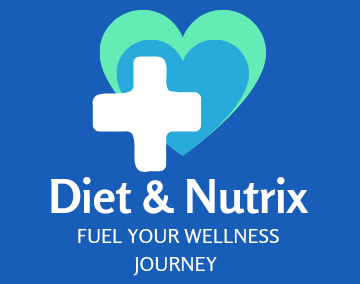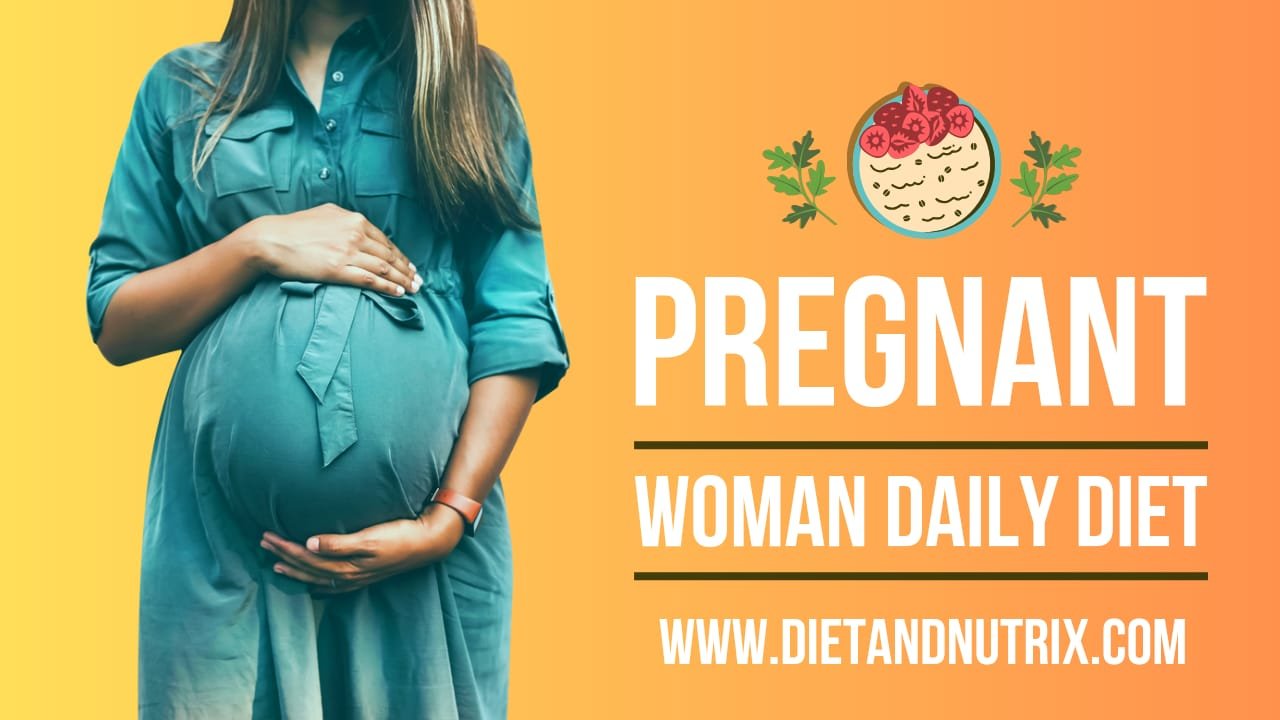The Best Diet for the Third Trimester of Pregnancy
The third trimester of pregnancy, covering weeks 28 to 40, is a period of quick development and last arrangements for the arrival of your child. Your baby grows quickly during this time, and your body undergoes significant changes to support this growth. To meet your needs and the needs of your growing baby, a well-balanced diet is essential.
This blog of www.dietandnutrix.com will guide you through the best diet for the third trimester, including key nutrients, sample meal plans, and practical tips. Let’s dive in!

Importance of a Healthy Diet in the Third Trimester Pregnancy
Your baby’s growth accelerates during the third trimester, which means you need more food. A reasonable eating routine assists you with remaining solid, oversee normal pregnancy side effects, and guarantee your child grows properly.
Essential Nutrients for the Third Trimester Pregnancy
- Protein: Supports the rapid growth of your baby and the development of maternal tissues.
- Sources: Lean meats, poultry, fish, eggs, beans, nuts, and dairy products.
- Calcium: Critical for developing strong bones and teeth.
- Sources: Milk, cheese, yogurt, fortified plant-based milks, almonds, and leafy greens.
- Iron: Essential for preventing anemia and supporting increased blood volume.
- Sources: Red meat, poultry, fish, lentils, spinach, and iron-fortified cereals.
- Folic Acid: Continues to be important for preventing neural tube defects and supporting overall development.
- Sources: Leafy greens, citrus fruits, beans, peas, and fortified grains.
- Omega-3 Fatty Acids: Crucial for brain and eye development.
- Sources: Fatty fish (like salmon and sardines), flaxseeds, chia seeds, and walnuts.
- Fiber: Helps prevent constipation, which can be common in late pregnancy.
- Sources: Whole grains, fruits, vegetables, legumes, and nuts.
- Vitamin D: Supports bone health and immune function.
- Sources: Sunlight exposure, fortified foods, and supplements as recommended by your doctor.
- Vitamin C: Enhances iron absorption and supports immune health.
- Sources: Citrus fruits, strawberries, bell peppers, and broccoli.
- Magnesium: Important for muscle function and reducing leg cramps.
- Sources: Nuts, seeds, whole grains, and leafy green vegetables.
Sample Meal Plan for the Third Trimester
Breakfast:
- Oatmeal with Fresh Fruit: High in fiber and vitamins. Add a handful of nuts for extra protein and healthy fats.
- Glass of Fortified Orange Juice: Rich in vitamin C and folic acid.
Mid-Morning Snack:
- Whole Grain Toast with Avocado: Provides fiber, healthy fats, and essential nutrients.
Lunch:
- Turkey and Avocado Wrap: Whole grain wrap with lean turkey, avocado, lettuce, and tomatoes. Add a side of baby carrots for crunch and fiber.
- Side Salad with Mixed Greens: Tossed with a light vinaigrette for additional vitamins and minerals.
Afternoon Snack:
- Greek Yogurt with Honey and Berries: High in protein and antioxidants.
Dinner:
- Grilled Salmon with Quinoa and Steamed Asparagus: Rich in omega-3 fatty acids, protein, and essential nutrients.
- Mixed Green Salad: With a light dressing for a fresh and healthy addition.
Evening Snack:
- Small Bowl of Cottage Cheese with Pineapple: Offers a satisfying combination of protein and natural sweetness.
Hydration and Additional Tips
- Stay Hydrated: Drink plenty of water throughout the day to stay hydrated. Aim for at least 8-10 glasses of water daily.
- Continue Prenatal Vitamins: These ensure you get all the necessary nutrients.
- Avoid Certain Foods: Steer clear of raw or undercooked seafood and meats, unpasteurized dairy products, and excessive caffeine.
- Small, Frequent Meals: Helps manage blood sugar levels and prevents heartburn.
- Listen to Your Body: Eat when you’re hungry and stop when you’re full.
Common Questions About Third Trimester Pregnancy Nutrition
Q: How much weight should I gain during the third trimester Pregnancy?
A: Weight gain varies for each woman, but on average, expect to gain about 1 pound per week during the third trimester. Consult your healthcare provider for personalized advice.
Q: Can I still drink coffee?
A: Yes, but limit your intake to 200 mg of caffeine per day, which is about one 12-ounce cup of coffee.
Q: What if I’m vegetarian or vegan?
A: You can still get all the necessary nutrients. Focus on plant-based proteins like beans, lentils, tofu, and ensure you’re getting enough iron and vitamin B12 through fortified foods or supplements.
Foods to Avoid in the Third Trimester Pregnancy
- Raw or Undercooked Seafood and Meat: To avoid bacterial infections.
- Unpasteurized Dairy Products: Risk of listeria, which can be harmful to your baby.
- High-Mercury Fish: Such as swordfish, shark, and king mackerel.
- Excessive Caffeine: Can increase the risk of miscarriage and low birth weight.
Managing Common Third Trimester Pregnancy Symptoms Through Diet
Heartburn and Indigestion:
- Eat small, frequent meals.
- Avoid spicy and fatty foods.
- Stay upright for a while after eating.
Leg Cramps:
- Ensure adequate magnesium intake.
- Stay hydrated.
- Stretch your legs before going to bed.
Swelling (Edema):
- Reduce sodium intake.
- Stay hydrated.
- Elevate your feet when you are resting.
Fatigue:
- Eat balanced meals with complex carbohydrates and protein.
- Avoid sugary snacks that can cause energy crashes.
- Get plenty of rest and light exercise.
Conclusion
Keeping a decent and nutritious eating routine during the third trimester is important for your wellbeing and your child’s turn of events. You can support your baby’s growth and prepare for a healthy delivery by focusing on essential nutrients and eating a variety of healthy foods. Make sure to talk with your medical care supplier for customized dietary guidance.
For more tips and personalized advice on pregnancy nutrition, visit Diet and Nutrix
More Related Contents:


